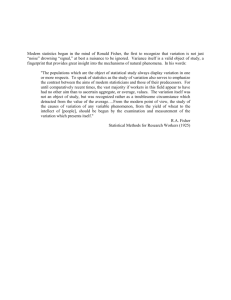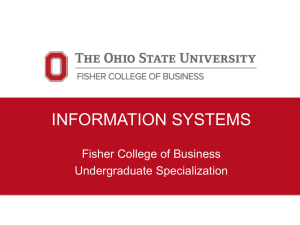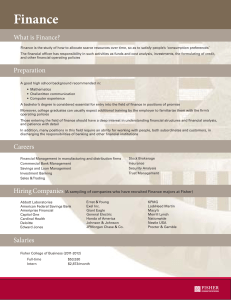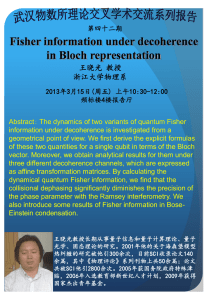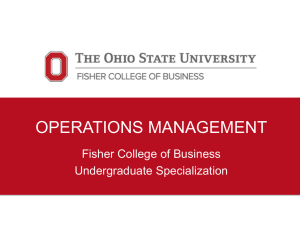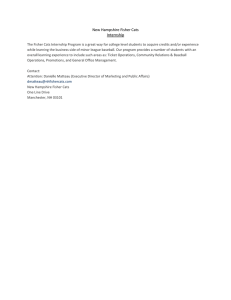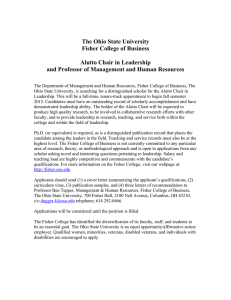Dean’s Message The Art of Leadership
advertisement
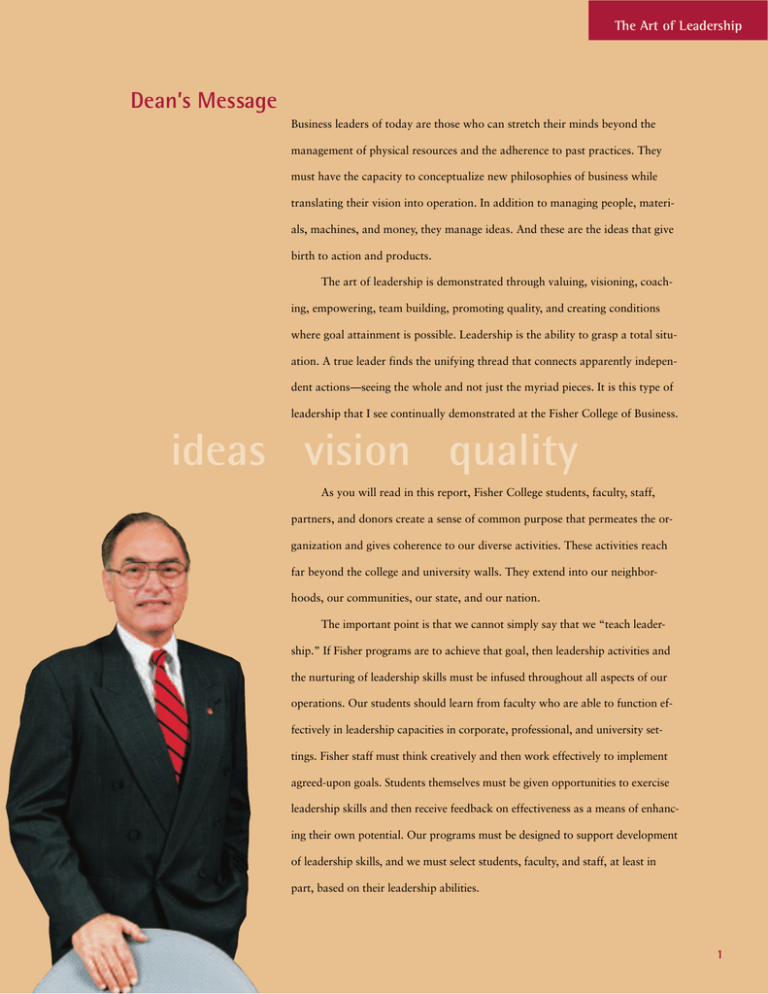
The Art of Leadership Dean’s Message Business leaders of today are those who can stretch their minds beyond the management of physical resources and the adherence to past practices. They must have the capacity to conceptualize new philosophies of business while translating their vision into operation. In addition to managing people, materials, machines, and money, they manage ideas. And these are the ideas that give birth to action and products. The art of leadership is demonstrated through valuing, visioning, coaching, empowering, team building, promoting quality, and creating conditions where goal attainment is possible. Leadership is the ability to grasp a total situation. A true leader finds the unifying thread that connects apparently independent actions—seeing the whole and not just the myriad pieces. It is this type of leadership that I see continually demonstrated at the Fisher College of Business. ideas vision quality As you will read in this report, Fisher College students, faculty, staff, partners, and donors create a sense of common purpose that permeates the organization and gives coherence to our diverse activities. These activities reach far beyond the college and university walls. They extend into our neighborhoods, our communities, our state, and our nation. The important point is that we cannot simply say that we “teach leadership.” If Fisher programs are to achieve that goal, then leadership activities and the nurturing of leadership skills must be infused throughout all aspects of our operations. Our students should learn from faculty who are able to function effectively in leadership capacities in corporate, professional, and university settings. Fisher staff must think creatively and then work effectively to implement agreed-upon goals. Students themselves must be given opportunities to exercise leadership skills and then receive feedback on effectiveness as a means of enhancing their own potential. Our programs must be designed to support development of leadership skills, and we must select students, faculty, and staff, at least in part, based on their leadership abilities. 1 The Art of Leadership In this report I hope you will see evidence that the Fisher College takes seriously this commitment to enhancing the leadership skills of our students. We do this through formal course work but also by creating a climate in which leadership is exercised by all members of our community and celebrated as an approach to life. You will see examples of that leadership from faculty, staff, students, alumni, and other supporters of the college. The contexts will vary; the visibility of the efforts will vary; even the level of success will not be constant. Leadership skills can be honed in a variety of different settings and conditions. Our collective task as a college is to have a steadfast commitment to support and nurture talents that lead to effective leadership. I think we are achieving that goal. purpose coherence The leadership examples described in this report are exciting. They should provide you with a sense of the individual and collective dynamics that are the foundation for much of our success. True leadership involves constant questioning, searches for better ways of operating, an openness to new ideas, and an appreciation for the value of tradition. Once those worldviews are developed, they are reflected in all aspects of life—enriching families, the workplace, and communities. Working with colleagues and students who value leadership means there is literally “never a dull moment”—and that is an environment I hope you find as attractive as do I. Joseph A. Alutto 2
